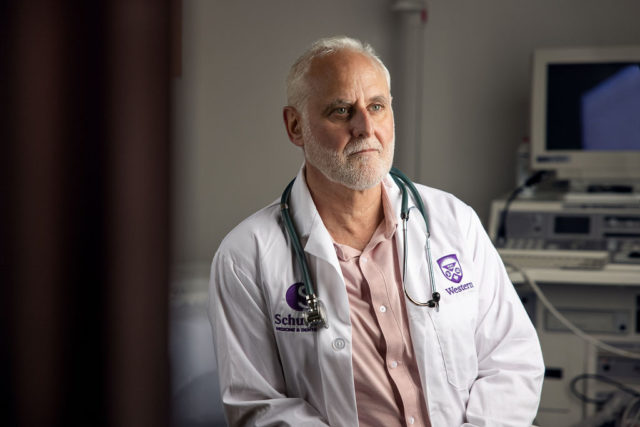The strength and leadership of Indigenous communities is key to providing effective diabetes care for their populations, according to one of Canada’s foremost experts in fighting the deadly disease.
Dr. Stewart Harris, the Diabetes Canada Chair in Diabetes Management, develops and delivers strategies to support Indigenous communities and other vulnerable and racialized populations to help manage and reduce diabetes-related outcomes.
A professor of family medicine at Western’s Schulich School of Medicine & Dentistry, Harris launched a special project more than a decade ago with the goal of finding locally-led solutions for diabetes treatment and prevention by providing improved supports and service in Indigenous communities. The program, which has grown substantially since its inception, partners quality improvement strategies developed at Western with community leaders from coast to coast to coast.
“The community members are the experts at knowing what will work within their contexts,” says Harris. “What I learned in my work is that one of the greatest strengths for those living on reserve is the community; and communities are capable of doing incredible things.”
Originally conceived as the Canadian Institutes of Health Research-funded FORGE AHEAD Research Program, it merged with Western’s SOAR: Pathways to Wellness Program in 2019, leading to further improvements for Indigenous communities by training and coaching local health care providers. It has now evolved into the national REACH program.
“There is no cookie-cutter approach that works for all communities,” says Cynthia Benoit, a Miawpukek social worker who worked on the project. “FORGE AHEAD empowered the community to develop a plan to increase health outcomes for persons with diabetes and was instrumental in making sure our plan was reflective in supporting what was best for the communities and the health centres.”
Patient advocate
Harris has spent his career ensuring that all patients with diabetes – regardless of their circumstances – have access to the best possible care.
Beginning his career as the medical director of the University of Toronto’s Sioux Lookout Program located in the remote community of Sioux Lookout, Harris has always focused on ensuring that those with barriers to care have the supports they need to manage their disease, not just in his home community of London, but right across the country.
In London, along with nurse practitioner Betty Harvey, Harris established the Primary Diabetes Support Program at St. Joseph’s Health Care London more than a decade ago. The program provides care for at-risk patients with diabetes, including those without a family doctor, those in the community experiencing homelessness, and immigrants or refugees with language or cultural barriers to care.
“We look after those patients that no one else looks after,” says Harris, who says many of these patients have other related conditions, like kidney disease and heart failure; and may have exacerbated risk factors like food insecurity, lack of access to housing and medications.
“If they don’t have a family doctor, they don’t have anyone advocating for them and helping them access care. That’s where we come in,” says Harris.
